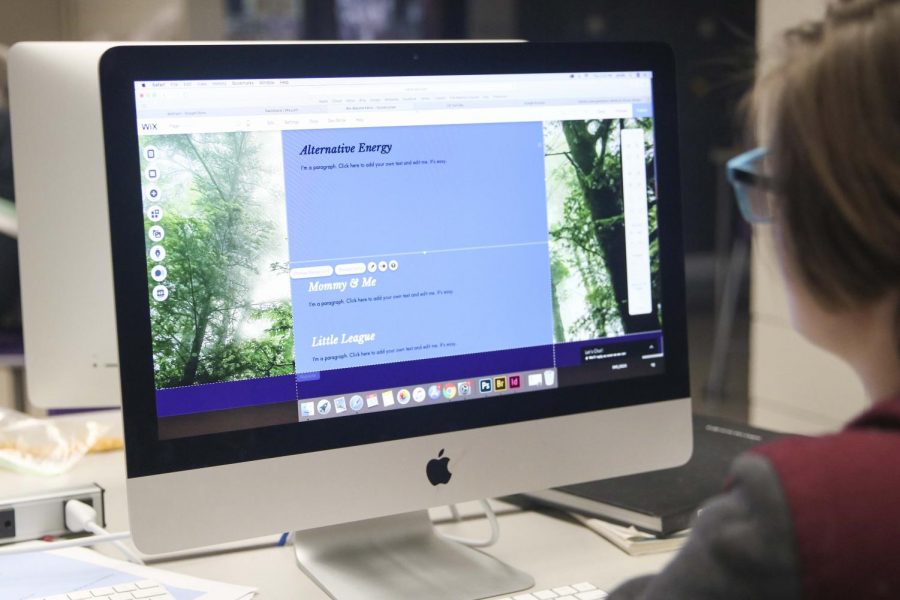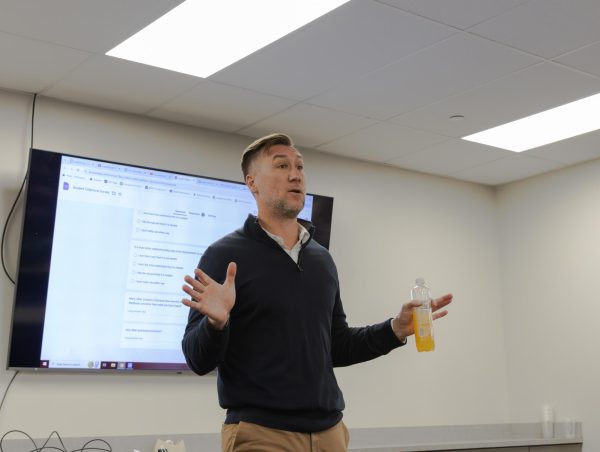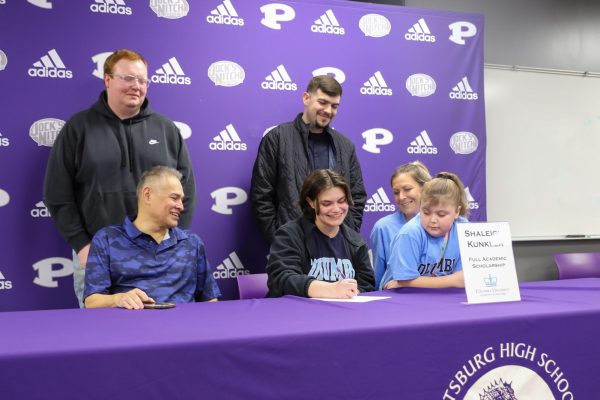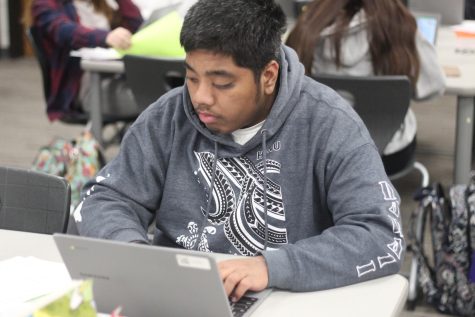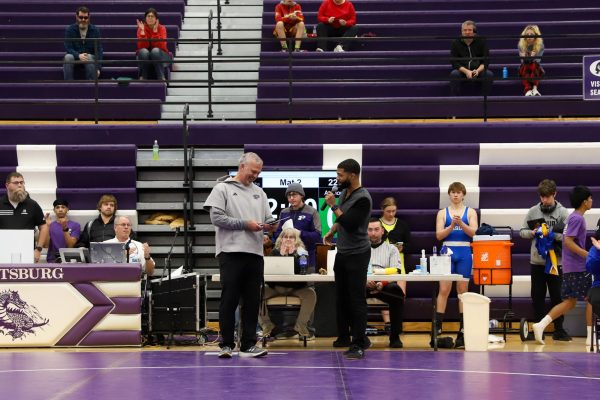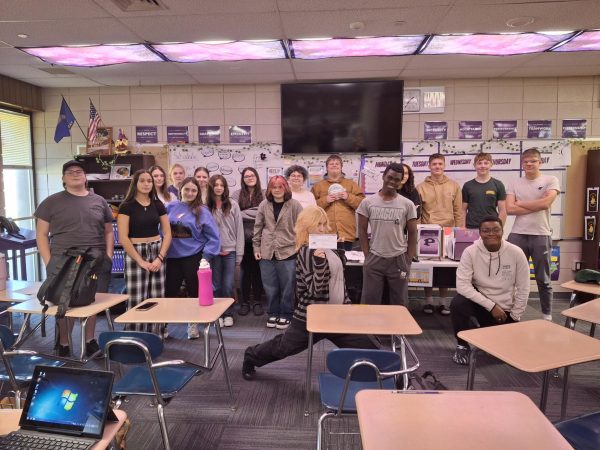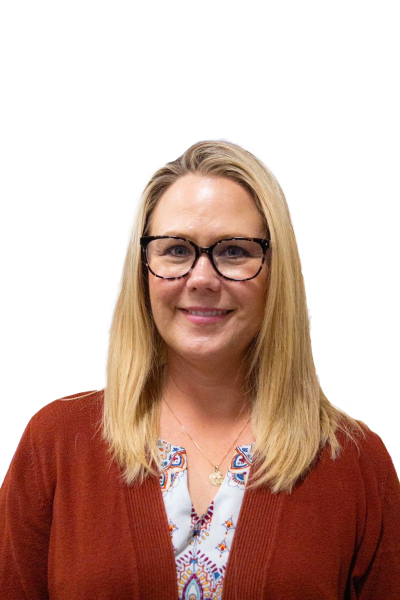Physics class competes in international student contest
Photo by: Francisco Castaneda
Angel-Lea Childers works on a webpage for the project for Sally Ricker’s physics class.
In today’s world, most people know two things about nuclear weapons: they’re big and scary.
Sally Ricker’s physics class is diving deeper into that field of knowledge by participating in an international student competition run by the International Atomic Energy Agency (IAEA).
According to the IAEA, “One of the challenges of the human resources lifecycle in the nuclear field is attracting and recruiting talented individuals. To foster the younger generation’s interest in education in nuclear technology, the IAEA is holding an international student competition.”
Ricker is using this competition to implement project-based learning into her curriculum.
“The website gave some options for [project ideas]. Something is supposed to be supported by technology,” Ricker said. “We decided to go all out and build a website. We have multiple components of technology in it.”
Junior Kole Perez has been compiling facts about the pros of the nuclear industry and designing a webpage for the project. One pro that Perez found was the financial benefit of working in the nuclear industry.
“I was looking at labor statistics… and nuclear engineers make $107,000 a year [on average] versus mechanical engineers where they make $84,000 a year [on average],” Perez said. “It’s a big wage gap.”
Ricker’s class has contacted field professionals for this project.
“We have interviews from leaders in the nuclear industry,” Ricker said. “Someone actually got a hold of a Ph.D. candidate at the University of California-Berkeley [whose father-in-law works at Pitt State], and he met with us [in person] at Block 22 and had a conversation with us for about an hour.”
According to Gallup’s annual Environmental Poll, 49 percent of Americans strongly oppose the use of nuclear energy. Ricker feels this opposition is unnecessary.
“It’s a great way to reduce carbon emissions and help the planet, so I do think people are scared,” Ricker said. “I don’t think there are very many people [who] have had any type of background… the population is not very well-versed in nuclear [technology].”
Through his research, Perez has learned that nuclear energy is environmentally friendly.
“They take uranium, enrich it and then make it fission so it… powers a turbine,” Perez said. “All it produces is steam, so there’s absolutely no harm against the environment other than what comes out of the reaction, but usually it’s all barreled up.”
DevSquared is a software development company based in Pittsburg. According to Ricker, the employees at DevSquared have been working with her students and teaching them about website design.
“They’re working with the community, they’re working with each other. They’re pushing each other to new levels,” Ricker said. “They’re not just learning the content, they’re learning some really good 21st-century skills.”
The deadline for project outlines is Jan. 31. If Ricker’s class is selected as a finalist, students will be invited to Moscow for a conference where they will present their project.
According to Ricker, the IAEA will pay for three students and one advisor to attend the conference. If they are named finalists, Ricker’s class will need to do fundraising for her other 21 students’ travel expenses.
Ricker says she has taken a back seat in this process.
“They’ve run the show,” Ricker said. “I’ve become a coach instead of a teacher and let them take this project down the road they want it to go.”
Your donation will support the student journalists of Pittsburg High School - KS. Your contribution will allow us to purchase equipment and cover our annual website hosting costs.
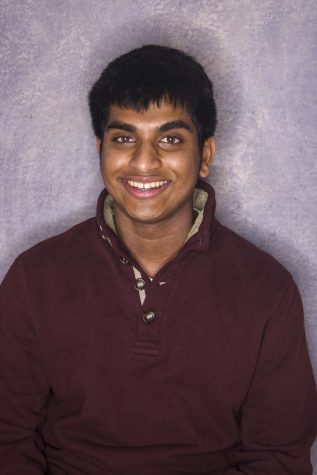
This is Jacob's second year on the newspaper staff at PHS. He is also involved in debate, scholars bowl, forensics, math club, key club, FCA,...
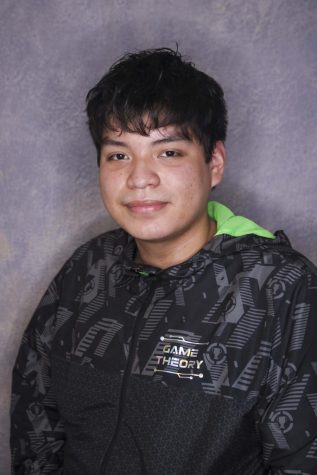
This is Francisco’s third year being involved with photojournalism and his first part of being involved in yearbook. Francisco is also involved in Key...


